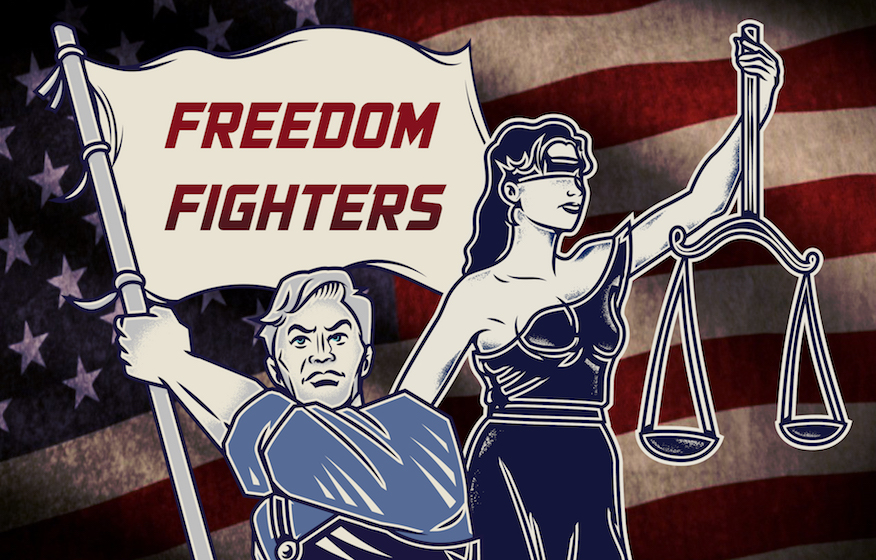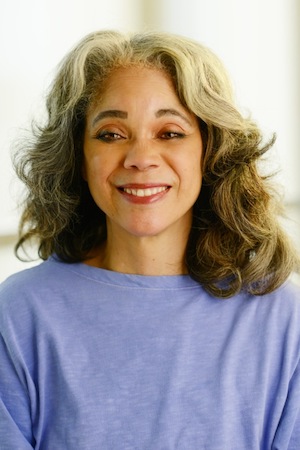Legal Freedom Fighter Series: Connie Rice

We’ve seen it repeatedly throughout our history: When people’s rights are threatened, it’s the lawyers who step up to the plate. Some are true Freedom Fighters, and they deserve special recognition. That’s why each month, we will feature lawyers who are really making a difference.
 Today, we are proud to feature Connie Rice.
Today, we are proud to feature Connie Rice.
Connie Rice is a civil rights lawyer who engineers systemic fixes to entrenched inequality and injustice. California Law Business Journal twice designated her one of the top ten most influential attorneys in California. Through impact litigation, campaigns and inside bureaucratic maneuvering, she has led coalitions and clients to win more than $30 billion in damages, bonds and policy changes. Bus riders, death row inmates, folks abused by police, school kids, whistleblowers, cops and sufferers of every stripe of discrimination, (sex, race, disability, age) have sought her counsel. But so have her opponents, like the Los Angeles Police Department she sued for 15 years but which now reserves a parking space for her at their new headquarters.
Connie graduated from Harvard-Radcliffe colleges in 1978 and entered New York University School of Law on a Root Tilden Scholarship. In law school she worked extensively on capital punishment cases at the NAACP Legal Defense and Educational Fund and after graduating from law school, she clerked for the Honorable Damon J. Keith at the United States Court of Appeals for the Sixth Circuit for two years before joining the law firm of Morrison & Foerster in San Francisco. She rejoined the NAACP Legal Defense Fund in 1989 as Western Regional Counsel, won several landmark cases and in the words of one magazine, established herself as “the voice of Los Angeles’ oppressed.” In 1998, Connie helped launch The Advancement Project, a policy action and technology organization in 1998, and in the words of Los Angeles Magazine, “picked up where Clarence Darrow left off.”
Here’s the interview:
What inspired you to become a lawyer in the first place?
Congresswoman Barbara Jordan’s commanding performance at the Watergate hearings.
What was your most memorable case?
My most memorable case was a clemency bid for a Georgia death row inmate named Billy Neal Moore. His trial lawyer had assured Moore that because he golfed with the judge, Moore could safely plead guilty to murder. Immediately after Moore pled guilty, however, the judge sentenced him to death. In 1984, after 16 years on death row, Moore’s last habeas appeal had failed and a last-minute stay of his execution had left the clemency petition that Julia Boaz and I, two interns with the NAACP Legal Defense Fund at the time, had prepared as his last hope. We knew that seeking legal redress from a court is a matter of law but seeking clemency for murder from a governor is a matter of mercy—and a “Hail Mary.” It had been over 100 years since Georgia’s last grant of clemency, and only an extraordinary petition backed by a public campaign stood a chance.
So, Julia and I flew down to the victim’s rural east Georgia town to beg the matriarch of his family, Mrs. Stapleton, to spare our client. After several visits to her farm, praying, and agonizing over Moore’s case, she announced that God had moved her to seek mercy. Julia and I returned to New York and prepared a 1,000-page tome that included Moore’s baby pictures but began and ended with Mrs. Stapleton’s letter asking the governor to spare his life. Six years later, while driving to my job at the LA office of the NAACP Legal Defense Fund, NPR announced Georgia’s release of a death row inmate based on testimony from the victim’s family. And I knew then that our bid for mercy had worked. All of this says my best work was done as a law student and had nothing to do with law!
Why did you co-found the Urban Peace Institute?
We created the Urban Peace Institute to carry the police reform and gang violence reduction work. UPI does the Community Safety Partnership police training and runs LA’s LaVita Gang Intervention Academy that trains the city’s professional gang interventionists. Gang interventionists are former gang members trained to reduce gang homicide retaliation shootings, secure hospitals and schools against gang violence, and safely carry out violence reduction strategies in gang dominated neighborhoods. UPI also removes former gang members from the state gang database, helps former prisoners rehabilitate and creates public health violence and trauma reduction strategies for gang dominated areas. An academic evaluation of UPI trained interventionists conservatively documented that interventionists averted enough retaliation shootings to save LA $110 million over two years. And Chief Beck credited professional gang intervention as a major factor in our sustained reductions in gang crime and violence over the last 15 years.
From an equal rights and racial justice perspective, where do we stand today compared to previous years and decades?
We stand where we’ve always stood: in the breach, fighting to deliver America’s promise, and in deadly denial of our racial and other existential problems. Our zig zagged emergence from patriarchal slavery and native genocide continues its tortured and paradoxical steeplechase. Slavery didn’t end in 1865; it devolved. The fight to keep slaves is now a fight to keep the monuments. White supremacy didn’t end with Jim Crow; it morphed. Instead of white hoods and lynching, it dons polo shirts in Charlottesville, does mass incarceration and uses the Southern Strategy. We are currently fighting the last skirmishes of the U. S. Civil War and resisting the latest retrenchment away from equality and “our better angels.” In sum, amidst the stunning progress ushered in with the civil rights laws and the election of the first non-white president, we are still undecided in the choice between community and chaos. Right now, we are veering toward chaos and destruction of the constitutional framework that permits sporadic progress and perfectibility of the union. The critical path right now is to end the current wrecking of the rule of law, the truth and of our greatest credo: E Pluribus Unum. And then start a serious Truth & Reconciliation process that ends our deadly denial and leads to what King said must happen to realize equality: full political, economic, social and cultural integration. Or we can end the American experiment and continue today’s chaotic disintegration.
You’ve had so many successes. Which one stands out the most?
Co-creating the Community Safety Partnership policing unit with LAPD Chief of Police Charlie Beck. While the settlement value of our Bus Riders Union v. MTAcase still stands as the largest settlement in the history of civil rights cases (over $2 billion), the best service I’ve done has been in police culture reform and violence reduction. Chief Beck and I created a policing unit for the gang dominated public housing projects that has a different vision: when cops see a dark-skinned boy in Jordan Downs housing project, they will no longer automatically think “I get to arrest or shoot him,” but will instead think, “He’s mine to help.” CSP forges compassionate, culturally fluent cops who patrol on foot with residents, have a mindset of respect, do not fear black men, and serve long enough (5 years) to know residents’ names, and enough of their languages to forge partnerships. CSP officers have to show how they’ve joined with residents to remove crimogenic and dangerous conditions to fight crime and improve the neighborhood. CSP officers only arrest for violent crimes, only get credit for demonstrating how they averted arresting kids and how they generated trust with residents. Indeed, CSP officers do not get promoted without resident confirmation of trust. After ten years of CSP policing, not one CSP officer has shot a resident, and Jordan Downs and Nickerson Gardens housing projects reported zero murders in 2017. That’s like saying a Nevada brothel had zero sex acts last year. What do you do after Ferguson and Rodney King? CSP, the Community Safety Partnership.
How can an attorney get involved in high impact social justice?
Strategically. Make sure your legal education is financed; I could not have done this work without the Root Tilden Scholarship paying for my law degree. Go for the highest credentials you can achieve (i.e. top grades, clerkships, tough internships at the best public interest firms). Intern at the best non-profit impact litigation firms like the NAACP LDF, MALDEF, Lambda Legal Defense) or with the few for profit law firms that do aggressive class actions. Above all, make sure you have the fearless passion, political skill and drive required to force systems change over long timelines. The barriers to reaching transformational systems change are a mile high, and the audacious, politically fraught and sometimes dangerous steps required are not for the meek. Also, understand that sustained culture and mindset change will not come solely from what you do as a lawyer but through unlikely alliances with problem-solving opponents. The rewards to the marginalized people you serve and to yourself can be tremendous, but the social costs of doing high impact social change are high, and the resources close to non-existent. If you relish combat and can live cheaply, then go for it.
Share post:








